While it does seem to be that the worst effects of the COVID pandemic are essentially over, differing restrictions from country to country have left many looking more closely at options for domestic vacationing. In order to do that, you need a family vehicle that can either take on all your luggage and other travel gear in itself, or that can tow a trailer, perhaps even something larger and more substantial like a camping trailer.
Most people understand well that when it comes to towing, there’s essentially no beating a well-equipped SUV or a pickup truck. The Ford F-350, for example, can tow an astonishing 24,200-lbs. How do the up-and-coming electric vehicles fare compared to these established models? Can the likes of the Nissan Leaf even get close to the towing capacity of an SUV or other vehicle? This is the core question that we’ll be exploring in today’s blog.
Can a Nissan Leaf Tow a Trailer?
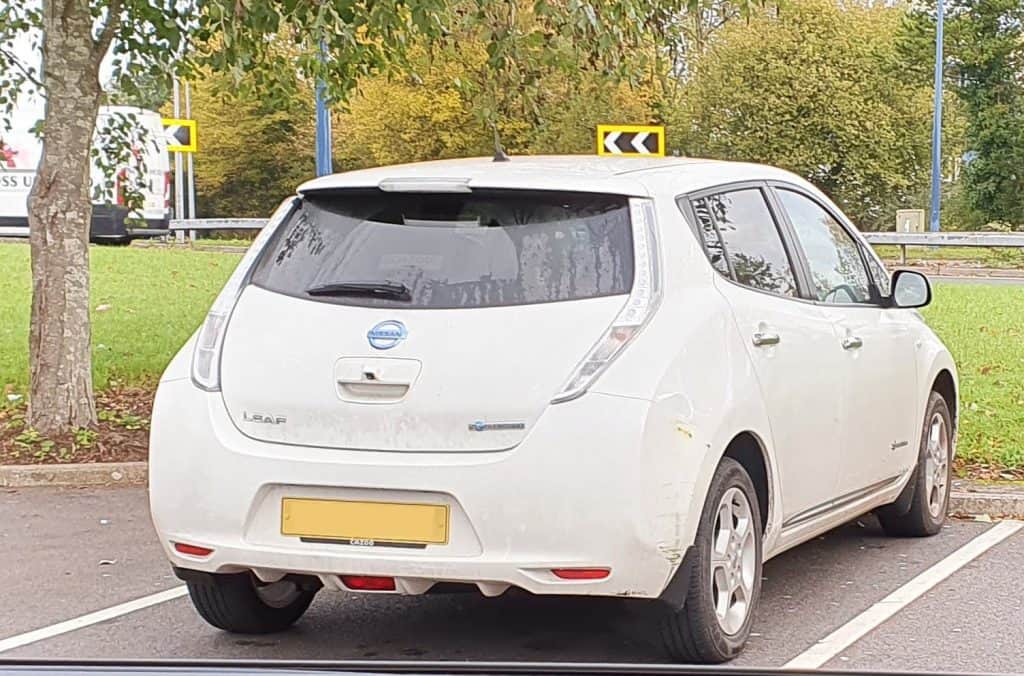
Let’s start with a simple answer to our core question: yes, the Nissan Leaf is capable of doing some towing, despite the common belief that electric vehicles are entirely unsuited to the task.
The main reason people question or doubt EV’s towing capabilities is because of the more complex rules surrounding towing electric vehicles themselves, in particular when it comes to flat towing. It’s for this reason that broken down EVs are typically collected on a flat-bed truck for transport to the repair shop:
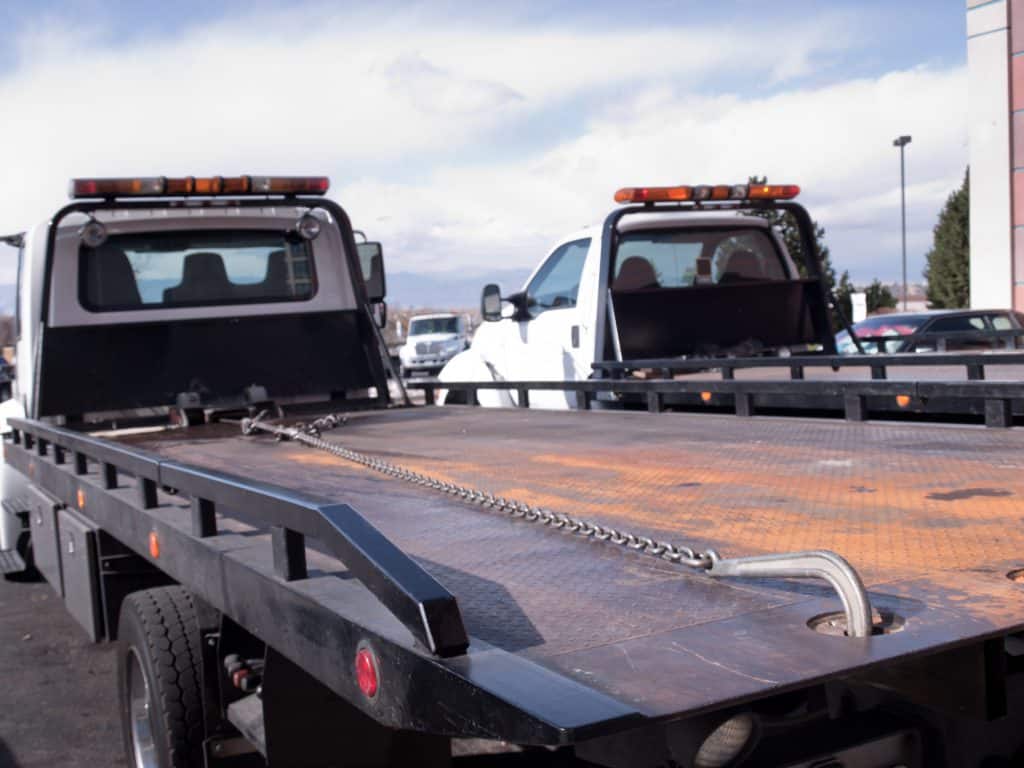
However, just as some of the rumors circulating around the towing of EVs — they can indeed be towed, but with a few special measures put in place — the same can be said for EVs themselves doing the towing. The Nissan Leaf can tow up to 1,500-lbs of payload, including the weight of the trailer.
When you see a number like one thousand five hundred, you might think it sounds a lot, but compare that for a moment to the above-mentioned Ford F-350 pickup truck and its capacity to tow some 24,000-lbs. When you do, you start to see that 1,500-lbs is a bit measly in comparison.
Nonetheless, the Leaf’s 1,500-lb capacity means that the Nissan Leaf can indeed pull small trailers, typically enough for a family vacation in which you might load up special beach gear like surfboards, inflatables, and more.
Is the Nissan Ariya Any Better for Towing?
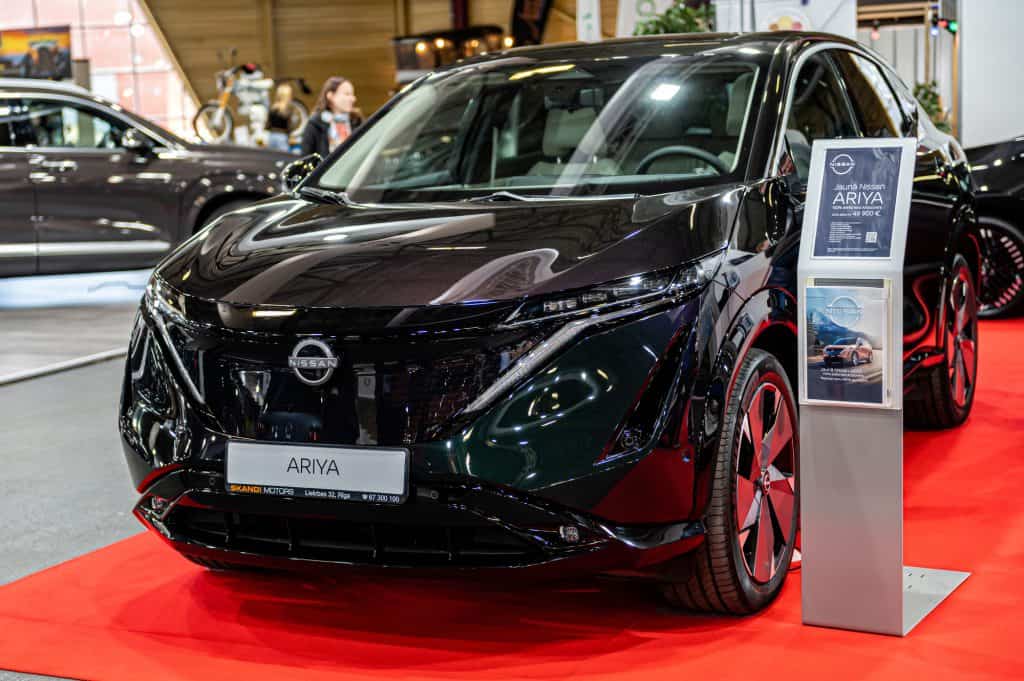
How about Nissan’s newest EV creation, the long-awaited and much-anticipated Ariya electric SUV? Does this offer a greater capacity when it comes to towing? In fact, no. Nissan already confirmed back in March 2021 that the Ariya would have a total towing capacity the same as that of the Leaf, 1500-lbs.
But why? Why bother creating an SUV version if it’s not going to offer more in the way of towing? The fact is that as things stand right, there are not so many EV models that are built with towing in mind. Most OEMs are laser-focused on providing the maximum-possible amount of range, and even when you rule out towing, that still typically leaves most models with ranges of 220 to 300 miles.
These range numbers already struggle with the likes of brands such as Tesla, and factoring in towing just means the numbers will fall even lower.
What’s more, Nissan’s EVs are not built so much with off-roading and rough-and-ready rural driving and heavy-duty towing in mind. Sure, the Ariya does include options for things like AWD, but it’s still mostly targeted at city-dwellers, or those who commute to and from the city for work and other life needs.
It’s not to say Nissan won’t explore these kinds of options in more detail at some point in the future. After all, Nissan has built some of the world’s most popular SUVs, and some of those have proven more capable with towing already. The popular Nissan Qashqai crossover, for example, can tow a braked trailer of up to 2,600-lbs.
Furthermore, other EVs are also emerging with very impressive towing capabilities, which we’ll explore in more detail further below.
How to Safely Tow Using a Nissan Leaf
So, we know that technically the Nissan can tow a small trailer with capacity up to 1,500-lbs. It’s not much but for those who just have a small need, it can prove a game changer. If you are going to explore Nissan Leaf towing options, here are a few safety tips for you.
Stick Rigidly to Weight Restrictions
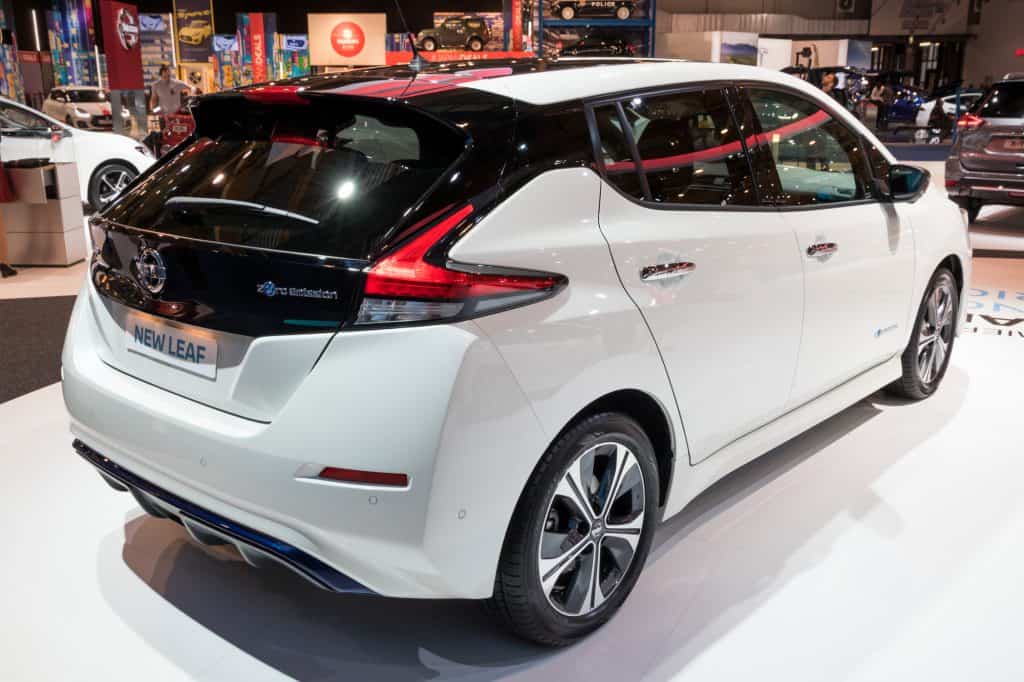
We’ve mentioned several times the capacity of 1,500-lbs, but there are many Nissan Leaf drivers out there who would swear by all they hold dear that their Leaf can and has towed more than that. For instance, in one YouTube video, the owner of a 2014-2015 Nissan Leaf (or possibly earlier) demonstrated how his car was capable of towing a ton — 2,000-lbs, 500-lbs over the reported capacity of the Leaf — of hay bales:
What’s perhaps even more interesting about the video is that the driver takes his Nissan Leaf uphill with his load in tow. It’s one thing to exceed a weight limit somewhat when one is on a flat road with minimal obstacles of any kind slowing the car or exerting any additional force. This content creator was clearly trying to show that his Leaf was far more capable than people imagine.
Despite stories like these, limits are not drawn by OEMs arbitrarily. They are primarily created to ensure that one’s activity will not exceed the physical capacity of the vehicle, thus compromising it and possibly forcing an OEM to pay out on warranty repairs.
You should be able to trust that any OEM is looking out for its own financial interest when it says that 1,500-lbs is the limit, and therefore that is most probably the real limit. If you were to experience some issue as a result of towing in excess of that amount, you’d be liable for all those repairs.
Drive Slower
Next, it stands to reason that when you’re out on the road towing a trailer, you should exercise elevated levels of caution and keep your speed down. Trailers make vehicles that much harder to control, and remember that the Nissan Leaf, while capable of towing up to 1,500-lbs, is still not primarily designed for regular towing. So, keep that in mind and slow down.
Check the Tow Hitch
When attaching the tow hitch equipment to the car, and then the trailer to the tow hitch, ensure that you have secured everything properly.
Note: If you are at all unsure about how it all works, then ensure that you use a qualified mechanic or technician to check it all over and guarantee that it will work safely and as desired.
Be Mindful of the Battery Capacity and Range
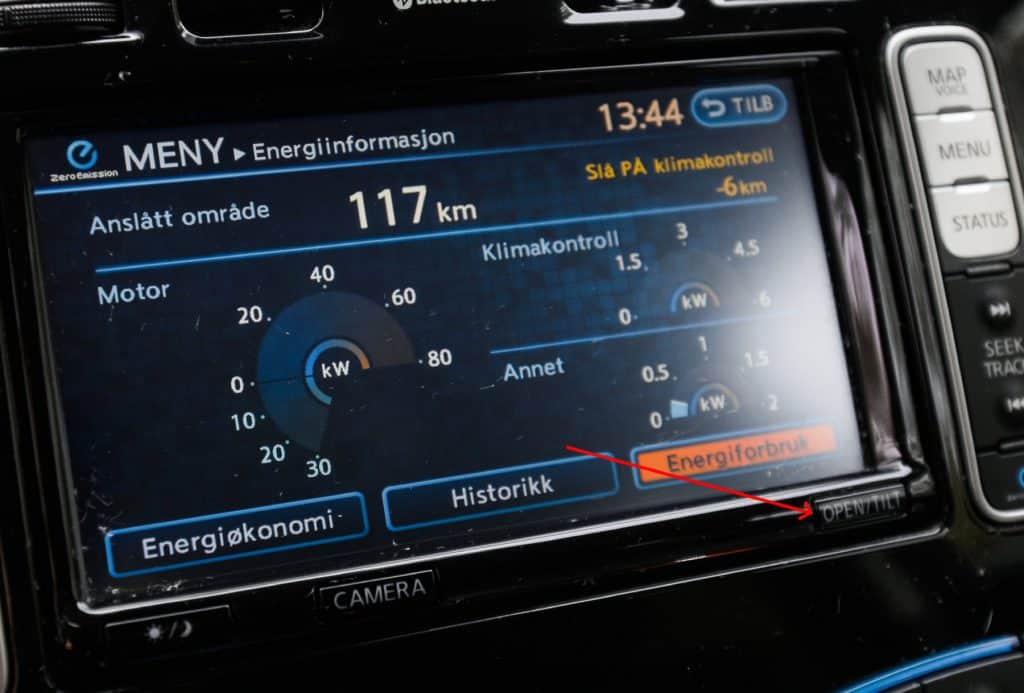
As we touched on further above, pulling a trailer with your Nissan Leaf will cause you to lose range. The added weight means your powertrain has to work harder to compensate. It’s the same when it comes to a gasoline engine and your regular fuel economy, so this should not be much of a surprise.
In the end, don’t expect at all for your Nissan Leaf to get the same kind of range (max. 239 miles) as when you’re not towing. Owners who have experience with towing report a loss of range anywhere between 20 and 40 percent depending on payload and the condition of the roads, as well as the ambient temperature, etc. Towing in cold weather on hilly terrain would be a very difficult challenge.
Watch Out for the Tires
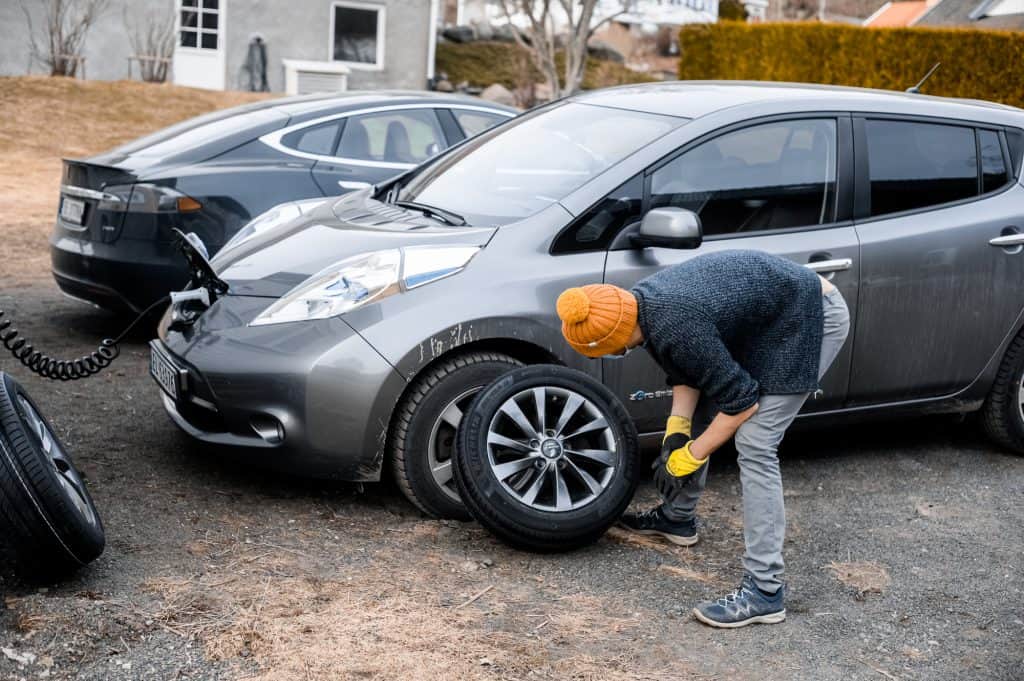
Finally, maintaining stable tire pressure and optimal tire conditions is essential when you’re planning on towing. A trailer following you just makes more risk in the event of a collision with other vehicles, so keeping everything in good order and stable on the road is critical.
Check your tire pressure, and the condition of your tires before embarking on any journey in which you intend to tow a trailer. This is especially important if you haven’t checked them in a long time, or it has been many months since your Leaf’s last service.
How Does the Nissan Leaf Compare to Other EVs in Towing?
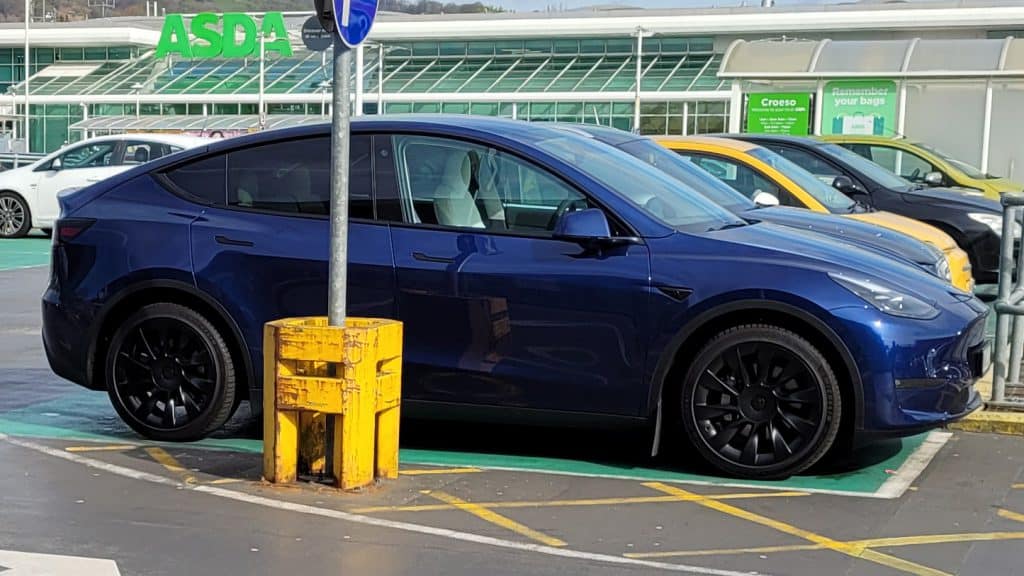
To wrap up, let’s see in more detail how the Nissan Leaf compares to other electric vehicles when it comes to towing. Below are the towing capacities of various popular EVs:
- Rivian R1T & R1S: 11,000 and 7,700-lbs respectively
- BMW iX: 5,512-lbs
- Tesla Model X: 5,000-lbs
- Mercedes-Benz EQA: 3,968-lbs
- Tesla Model Y: 3,527-lbs
- VW ID.4: 2,200-2,400-lbs (we have a full guide on VW ID’s towing capacity here)